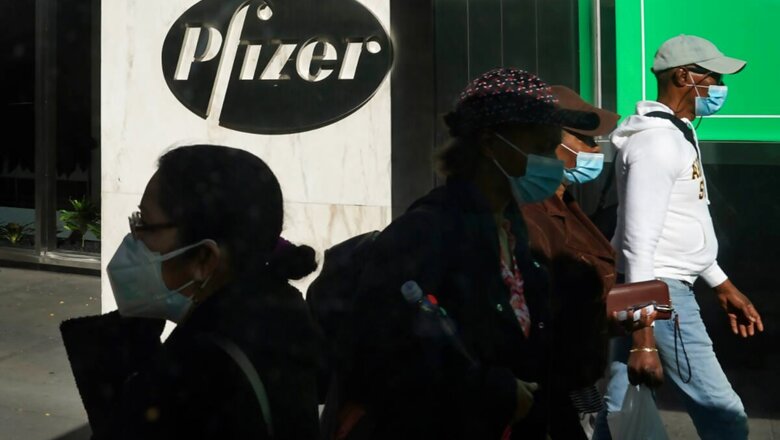
views
The EU’s drug regulator authorised the Pfizer-BioNTech coronavirus vaccine on Monday, and said there was no evidence it would not work against a new strain found mainly in Britain.
The European Medicines Agency said the “historic” step paved the way for vaccinations to finally start within days across the 27-nation EU where cases of the disease are surging.
The Amsterdam-based regulator moved the decision forward from December 29 under pressure from EU governments, after Britain and the United States gave the green light weeks earlier.
“It is a significant step forward in the fight against this pandemic that is causing suffering and hardship,” EMA chief Emer Cooke told an online press conference as she announced the decision.
“This is really a historic scientific achievement, within less than a year a vaccine will have been developed and authorised against this disease.”
The EMA approved a one-year “conditional marketing authorisation” for the vaccine developed by US giant Pfizer and German firm BioNTech, with the European Commission set to formally sign off on it within hours.
“It’s a decisive moment in our efforts to deliver safe & effective vaccines to Europeans!” European Commission chief Ursula von der Leyen said on Twitter.
“Now we will act fast. I expect a @EU_Commission decision by this evening.”
The EU has said it will start coordinated Covid-19 inoculations on December 27.
‘New variant’
The urgency surrounding the virus has increased with the news that a fast-spreading variant is sweeping Britain, prompting a growing number of countries worldwide to suspend flights from the UK.
Cooke said it appeared the Pfizer-BioNTech jab would work against the new strain.
“At this moment there is no evidence to suggest this vaccine will not work against the new variant,” she added.
The EMA has been under huge pressure to speed up the process with governments led by Germany asking why Britain and the United States were able to authorise the vaccine sooner.
It said the delay was because a conditional marketing authorisation is more thorough and lasts longer than the emergency authorisation used by London and Washington.
Cooke said the agency had “worked night and day” to speed things up, but needed to make sure the Pfizer-BioNTech vaccine was safe and effective, in order to avoid any doubts that could affect uptake.
A decision on another vaccine produced by US firm Moderna is due by January 6.
The Pfizer-BioNTech vaccine has proven to be 95 percent effective in global trials where two doses are injected three weeks apart.
It must be stored at -70 degrees Celsius (-94 degrees Fahrenheit), a temperature much lower than standard freezers and which forced the company to develop special containers for transport.
The EMA has been carrying out a so-called “rolling review” on the vaccine involving lab tests and large-scale human trials over the past few months, speeding up a process that normally lasts years.
The regulator can grant medicines a conditional marketing authorisation for the EU in public health emergencies. It then follows up with further tests to make sure there are no problems down the line.
Meanwhile, the EMA has also had to contend with a cyberattack in which data from the Pfizer-BioNTech and Moderna vaccines was stolen.
Read all the Latest News, Breaking News and Coronavirus News here



















Comments
0 comment